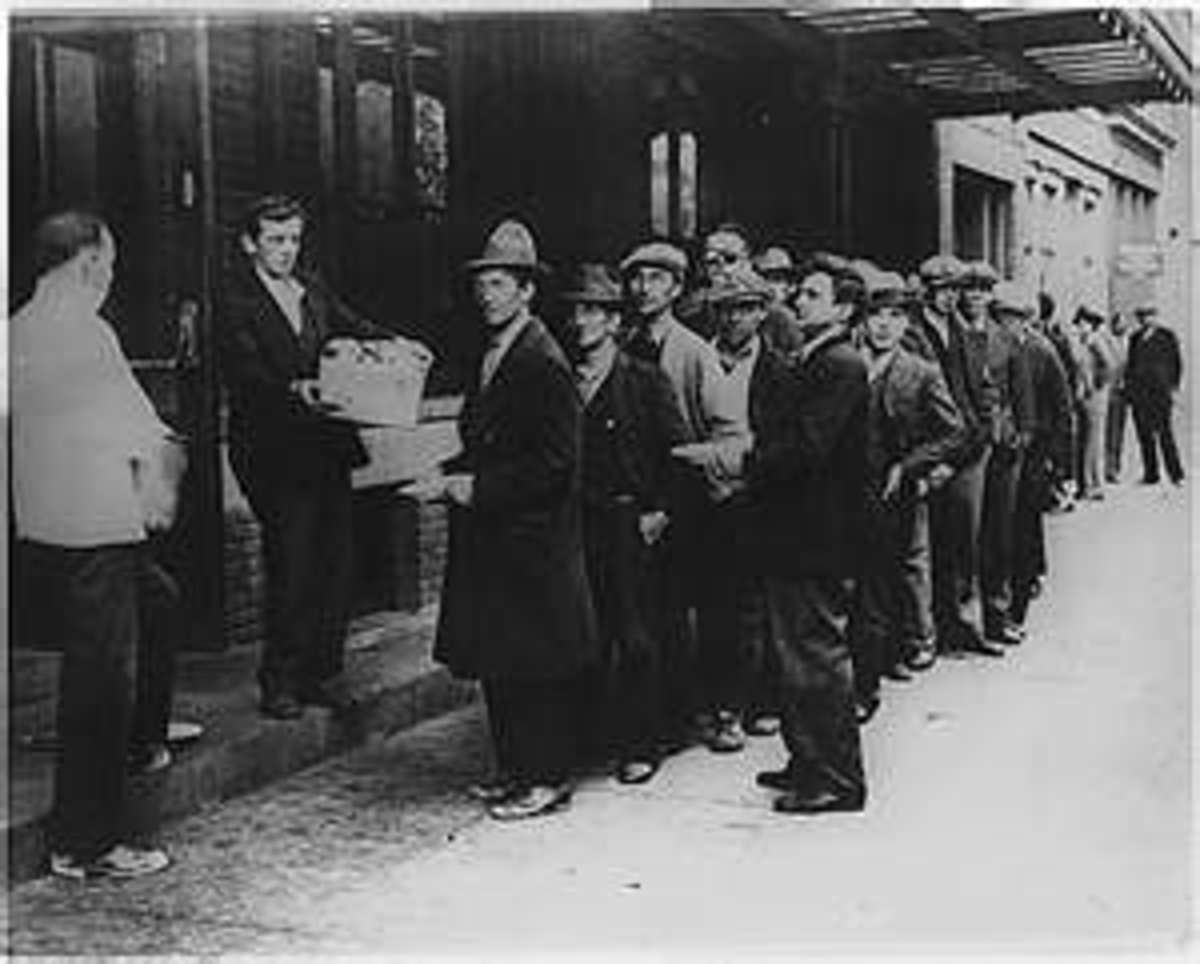Rick Santorum's Plan For Manufacturing Is Essential to the Recovery of the Economy

Also by Springboard
- A Survey Serves As Another Reminder of Buy American
A man who drives a Toyota, who mows his lawn with a mower made in Mexico, who then grills his food on a grill made in China needs to understand that what may well be at the heart of his low pay, and lackluster retirement outlook may just be a direct - Get Paid to Wait
Right now the focus should be on strong, secular stocks. Not cyclical ones. When the economy improves, and things are back on track, you can take the profits you made playing it safe and take more risk on the cyclicals which will dominate the market - Capitalism Is A Beautiful Thing When It Works
Politcians want to get reelected, and CEOs want to make money for their shareholders. They will do what needs to be done to achieve those ends. And again, these are free market principles working...what I like to call natural processes. Before what w
December 17, 2011
If there is one thing I absolutely agree with Rick Santorum on, it's his idea to restore manufacturing in the United States. I've been making this argument for some time that this country's largest economic successes in history were based on having a strong industrial base. I tend to think that our future economic successes must include a strong restoration of it. While I don't believe Rick Santorum will be our next president, though I must admit I would not be unhappy with him being the nominee, I do have a strong hope that whoever takes the reigns can seriously take Rick Santorum's ideas to task. We need a strong industrial base in this country. And not only for economic reasons, I also tend to believe that it is an issue of national security as well. I'll get to that later.
Make no mistake, I've never been a proponent of protectionism, even though if you took many of the comments I've made in the past on their surface it might seem that way. I am a free markets guy. I cannot stress that enough. My arguments against globalization are based solely on the basic idea that I believe globalization is only good for America if America can play in the game with the rest of the world. The erosion of our middle class, I believe, is largely rooted in the erosion of our industrial base in this country. We've made a tradeoff from good, solid paying, industrial jobs that everyone can do, regardless of their situation or access to things like education, to lower paying service ones. Even the jobs that require a degree (many that by the way really shouldn't require a degree) don't really pay as much as those old industrial jobs did. Especially when you consider the cost of the education.
The sad truth is that we've given up quite a lot, including our freedom to choose who we buy our goods from, and I think that's more than we bargained for when we bargained for the idea of expanding our opportunities globally. If it was an issue of cheaper is better, we've now come to a point where cheaper is all we can afford. People are not buying made in China because they prefer their products. It's all that's on the shelf is the reason. And that, my friends, is not a free market when choice is removed. You cannot cast a vote for "Made in America" if nothing on the shelves is actually made in America.
Consider for a moment that not everyone is college bound. Not everyone should be. I happen to think that a successful and robust economy cannot be based solely on the premise that a college education is the only path toward success and individual economic prosperity. Our grandfathers who worked the factory lines were not stupid people. They were hard working. The success of individual Americans should not be determined, either, based on whether or not one chooses to go the college route, or become a guy who makes things. And by the way, classifying someone as uneducated simply because they do not have a college degree, and therefore are undeserving of success is also terribly unfair, and I think wholly unfounded. Hard work should not be undermined and made out to be a loser's field.
Our economy needs both college and non-college people to be able to find honest work and more importantly, their path for success in life. Imposing limits on opportunity is a fool's path in my opinion. Right now don't we seem to have quite a big of egg on our faces? Furthermore, as a country we should be able to manufacture the goods we want and need, and I think there is absolutely no reason whatsoever that companies cannot do this at a profit. This argument that American labor costs so much, I think, really is a load of hogwash. Prices and wages, folks, are relative. And by the way, so are profits and margins. They are in fact directly related to one another. The only reason we tend to think American labor is so expensive is because paying American workers has served to undercut the top echelon's take of the profits. This fact is clear when you consider that in the last 30 or so years the income at the top has increased 30% while the average wage earner has only seen a 9% increase over the same period of time.
By the way, this last statement goes back to my former argument that, "If it was an issue of cheaper is better, we've now come to a point where cheaper is all we can afford." Things like most-favored-nation status, NAFTA, and not taking currency manipulation seriously enough hasn't helped either.
Let me just take a moment to give you one very small example of what I'm referring to when I say prices and wages are relative, and do accept my apologies for bouncing around a bit here. If I own a home and charge a rent, a tenant can afford to pay a higher rent if he earns more money. The price I charge for rent is relative to what my renter can afford to pay, quality of product notwithstanding of course. The amount a worker makes directly adjusts the amount the worker can afford to pay for the goods he buys, and therefore the point that paying worker's more eats away at the margins, to my mind, is moot.
I simply think that, like a good investment portfolio is diversified, so is a strong and robust economy diversified. If we expect a good return we cannot expect it by putting all of our eggs into one basket. Without manufacturing, we lose an important element in our economy that I think puts us at a terrible disadvantage. We've put all of our eggs into one basket and I think it's been terribly damaging to the middle class, and frankly has been very damaging as well to our opportunity to continue as a very prosperous nation.
I said earlier that I think having a weak industrial base is also an issue of national security. Think back to when we were engaged in the World Wars. If we don't have American companies who can mine, and manufacture, and innovate, and convert factories, in a time of world war, how do we defend ourselves? Sanctions are not only things we can place on our enemies. When we become the enemy, sanctions can be placed on us as well. And the time it would take to make our own bombs and tanks and other important defense things when those sanctions become imposed against us, if we allow our industrial base to erode to the point that we produce practically nothing at all, would be the very thing that would allow our enemies to move in for the kill. If the future of our economy doesn't keep you awake at night, this possibility certainly should.
At Blogspot
- The Springboard: An Open Letter to the Protesters
A guest blog, "An Open Letter to the Protesters," at the Springboard by HubPages very own Breakfastpop about the Occupy Wall Street crowd. Well worth reading, and highly recommended. - The Springboard: SMALL BUSINESS SATURDAY
I'm not saying we give up entirely on the bigger businesses. But I do think that we should be more inclined to shop local whenever we can, and small whenever we can. Just a little bit of market share passed along to a small business operator goes a v





